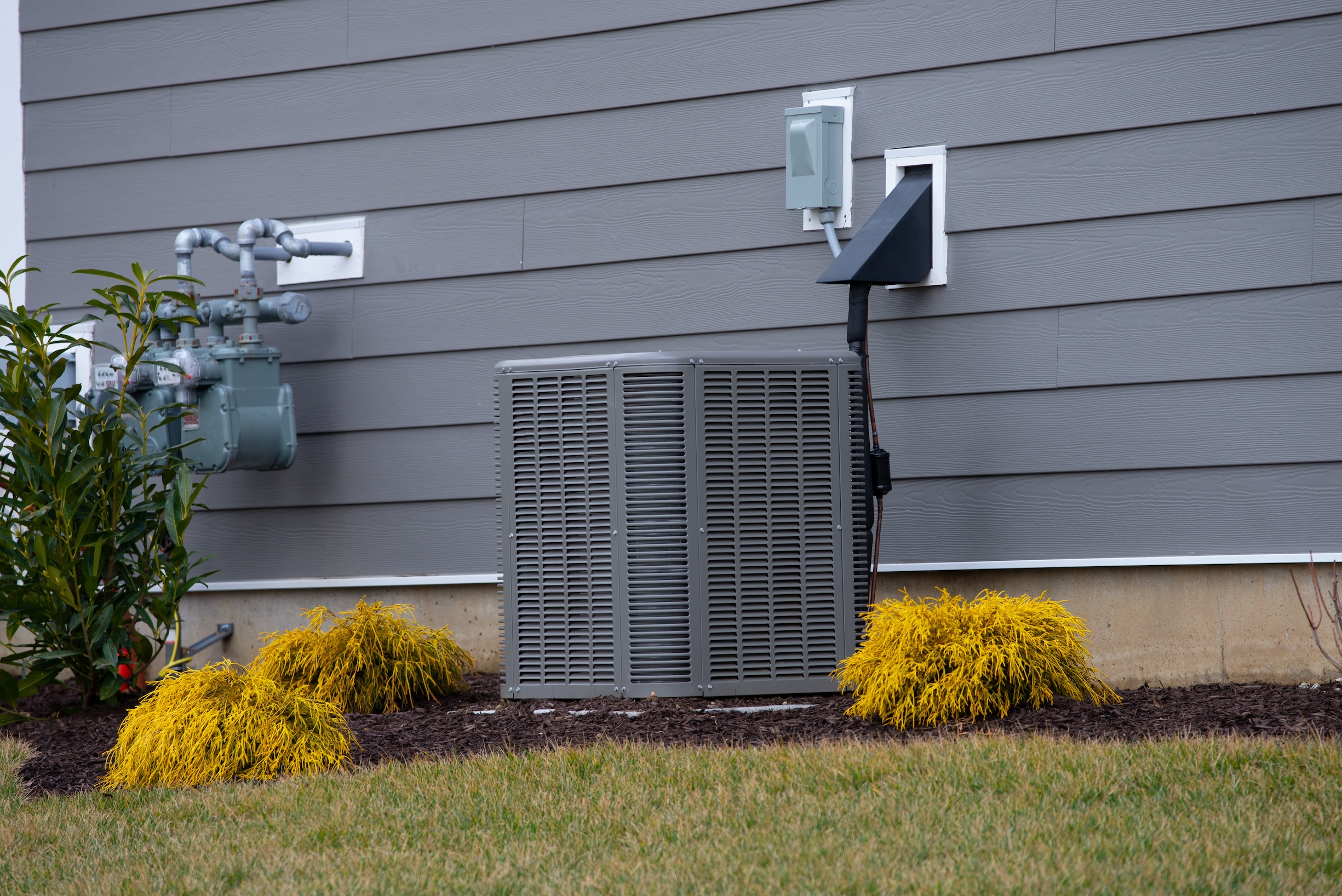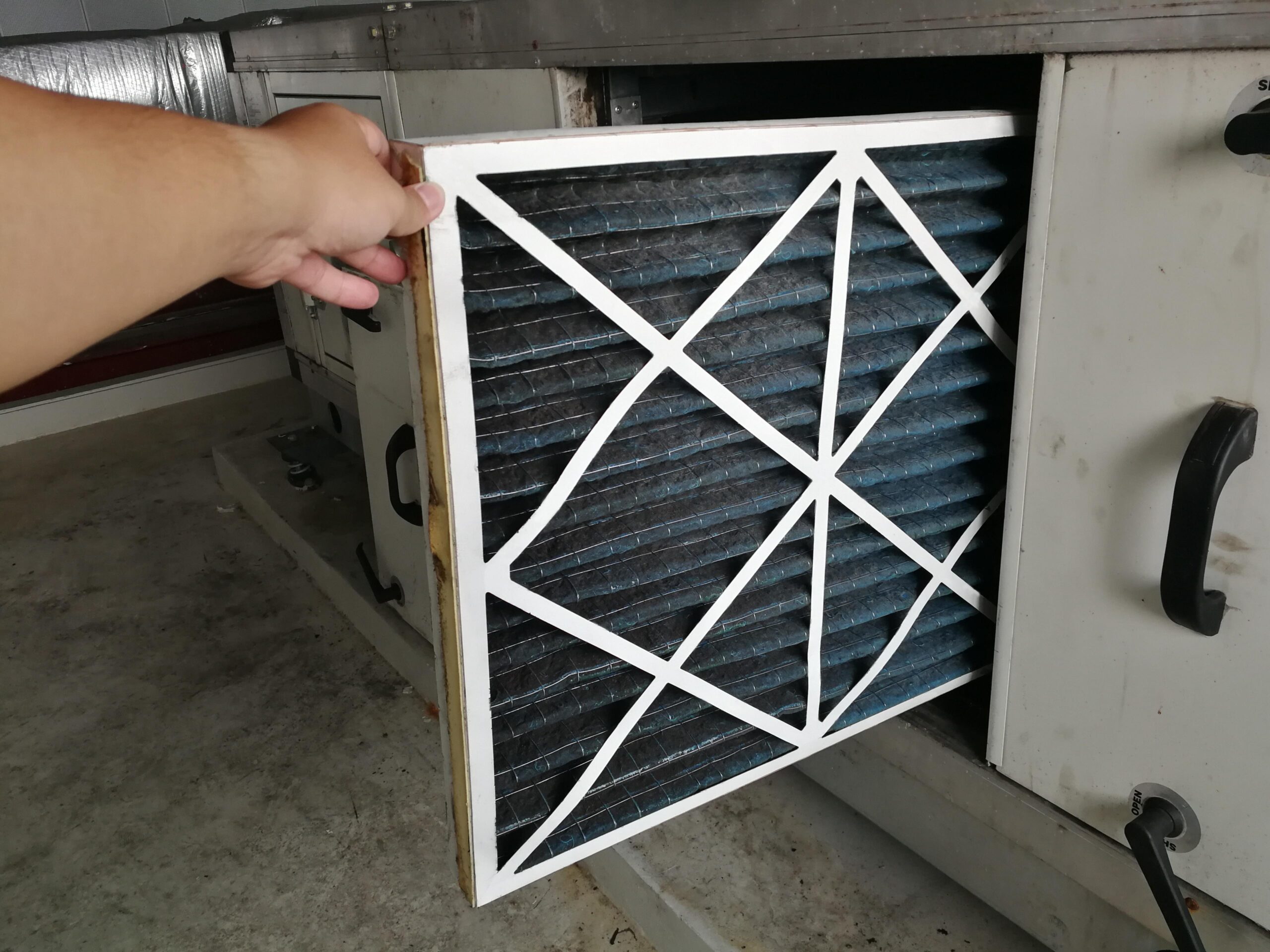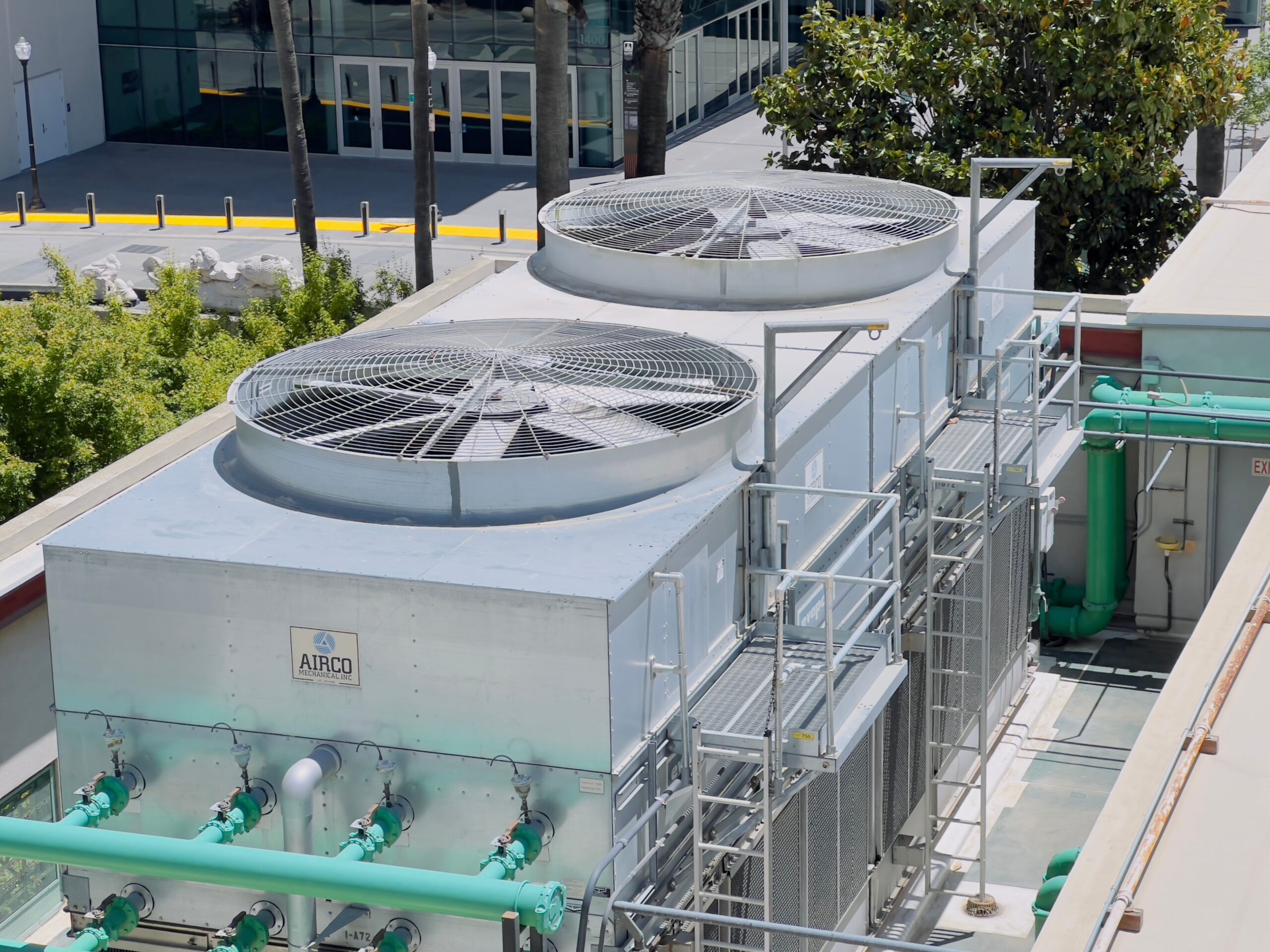Why Is My Outside AC Unit Making Noises? Causes & Solutions

All air conditioning units produce some level of noise during operation. However, when your outdoor AC unit begins emitting unusual sounds, it may be a sign of underlying issues that require attention. Understanding these noises and their potential causes can help you address problems early, ensuring efficient cooling and avoiding costly repairs.
In this post, we’ll explore the common reasons why your outside AC unit might be making noises beyond normal operation. From rattling and buzzing to grinding or clicking sounds, each type of noise can indicate specific issues with different components of your HVAC system. By learning to identify these sounds and knowing when to seek professional assistance, you can maintain optimal performance and prolong the lifespan of your air conditioning unit.
Common AC Noises & Their Causes
When your outside AC unit starts emitting unusual noises, it’s essential to decipher these sounds quickly. Here’s a breakdown of potential issues associated with the various types of noises you may hear:
Causes of a Louder-Than-Normal Outside AC Unit
A “louder-than-normal” outdoor AC unit could indicate several potential issues that will require professional attention:
- Dirty or Clogged Condenser Coils: If the condenser coils are dirty or clogged with debris, the air conditioner has to work harder to expel heat, resulting in increased noise levels.
- Fan Issues: Problems with the fan, such as bent blades or a failing condenser fan motor, can cause the unit to produce louder noises than usual during operation.
- Worn-Out Components or Loose Parts: Over time, various components of the AC unit, such as bearings in the motor or belts, can wear out or become loose, leading to increased noise levels during operation.
- Improper Installation: If the AC unit was not installed correctly, vibrations and rattling noises can be amplified, making the unit seem louder than normal.
- Age of the Unit: As air conditioning units age, the internal components can deteriorate, leading to increased operational noise.
- Lack of Maintenance: Regular maintenance, such as lubricating moving parts, cleaning coils, and inspecting components, helps ensure smooth operation and can prevent excessive noise.
If your outdoor AC unit is noticeably louder than usual, it’s advisable to have a professional HVAC technician inspect and diagnose the issue.
Loud Noises During AC Start-Up & Shut-Down
One common issue homeowners notice with their outdoor AC units is a loud noise during start-up or shut-down. Understanding the potential causes behind these noises can help in identifying and addressing the problem effectively.
Start-Up Noise
When your AC unit starts up, it might produce a loud noise due to several reasons:
- Compressor Issues: A loud banging or clanging noise at start-up could indicate problems with the compressor. This might be due to worn-out internal components or loose parts.
- Delayed Start-Up: If there is a delay in the unit starting properly, it could result in a sudden, louder noise when it finally kicks into operation. This delay might be caused by electrical issues or a failing capacitor.
- High Pressure in Refrigerant Lines: Excessive pressure buildup in the refrigerant lines can cause a loud noise as the compressor starts. This could be due to refrigerant overcharge or issues with the expansive valve.
Shut-Down Noise
When the AC unit shuts down, it might also emit loud noises, which could indicate:
- Pressure Equalization: As the system shuts down, there may be a sudden release of pressure within the refrigerant lines, resulting in a noticeable noise.
- Fan Blade Issues: If the fan blades are imbalanced or if there is debris caught in the fan, it may produce a loud noise as the fan is operating.
- Expansion and Contraction: As components of the AC unit heat up during operation and then cool down during shut-down, they may expand and contract, causing creaking or popping noises.
If you notice loud noises during start-up or shut-down of the unit, consider having a professional HVAC technician perform regular maintenance, inspect the electrical components, check refrigerant levels, and clean and inspect the fan blades. Addressing these issues can help prevent further damage and ensure quieter operation of the unit.
Common Causes of Buzzing in Your AC Unit Noises
A buzzing noise coming from your outdoor AC unit can indicate various underlying issues. Understanding these potential causes can help diagnose and resolve the problem effectively:
Electrical Issues
- Loose Wiring: Buzzing noises often stem from loose electrical connections within the AC unit. These connections can vibrate during operation, producing a buzzing sound.
Mechanical Issues
- Fan Issues: A buzzing sound may indicate problems with the fan motor or blades. Bent fan blades or a malfunctioning motor can produce vibration sounds as they struggle to operate smoothly.
- Vibration: Loose components or mounting brackets can cause vibration sounds. Checking and tightening these components can often resolve the issue.
Refrigerant Flow Issues
- Refrigerant Leaks: If there’s a refrigerant leak in the system, it can cause the AC unit to work harder than usual. This increased workload can lead to buzzing noises as the refrigerant flows through the lines.
If you hear a buzzing noise from your outdoor AC unit, turn off the unit at the thermostat and shut off power at the breaker to prevent any electrical hazards. Contact an HVAC professional to inspect the unit as soon as possible to properly identify the cause of the buzzing noise.
Why Your AC Unit is Making Clicking Noises
If you notice a clicking noise coming from your outdoor AC unit, it could indicate several potential issues. Understanding these causes can help you diagnose and resolve the problem effectively:
Electrical Issues
- Relay Switches: Clicking noises often occur when electrical relay switches turn on or off. These switches control various functions within the AC unit, such as the compressor and fan operation.
- Thermostat Problems: A malfunctioning thermostat can cause rapid clicking noises as it tries to signal the AC unit to turn on or off.
Mechanical Issues
- Fan Blades: Clicking sounds may indicate that debris or small objects are hitting the fan blades as they rotate. Clearing away any debris can often resolve this issue.
- Expansion and Contraction: As metal components of the AC unit heat up during operation and then cool down, they may expand and contract, causing clicking or popping noises.
If you hear clicking noises from the air conditioning unit, check to ensure your thermostat is functioning correctly and all debris is cleared away from the unit. If the noise continues after performing these tasks, contact a professional to check the electrical connections and perform an inspection to prevent further damage and ensure quiet, efficient operation.
Understanding Banging Noises from Your AC Unit
Hearing a banging noise from your outdoor AC unit can be concerning. Here are some common reasons for these sounds:
Compressor Issues
- Hard Start: A loud banging noise at the start-up of your AC unit could indicate a problem with the compressor. This might be due to internal damage or wear, causing the compressor to struggle when starting.
- Internal Component Failure: Components within the compressor, such as pistons or valves, may fail over time, resulting in irregular operation and banging noises.
Loose or Faulty Parts
- Loose Fan Blades: If the fan blades are loose or out of balance, they may hit the sides of the unit housing when the fan spins, causing a banging noise.
- Broken Motor Mounts: Motor mounts support the fan motor and compressor within the AC unit. If these mounts are broken or loose, the components can move excessively during operation, leading to banging sounds.
If you hear a banging noise from your air conditioner, turn off the unit to prevent further damage. Contact a professional HVAC technician to inspect the unit for loose components, check the compressor, and address possible refrigerant issues. Ignoring the banging noises can lead to more significant issues and potentially costly repairs.
Causes of Rattling Noises in Your Outside AC Unit
Hearing a rattling noise can be caused by several potential issues with the outdoor unit:
Loose Components
- Fan Blades: One of the most common causes of rattling noises is loose or bent fan blades. Over time, fan blades can become loose due to wear and tear or if they hit debris entering the unit.
- Fasteners and Panels: Vibrations during operation can cause screws, bolts, or panels to loosen. These loose components can rattle against the unit’s housing, producing a rattling sound.
Debris or Obstructions
- Debris in the Unit: Although rare, leaves, twigs, or other debris can accumulate inside the outdoor AC unit. When the fan operates, these objects can rattle around inside the unit, creating a rattling noise.
- External Obstructions: Check for any external obstructions around the unit that might be causing vibrations or rattling sounds. Clearing these obstructions can often resolve the issue.
Mechanical Issues
- Motor or Compressor Issues: Rattling noises can also indicate problems with the motor or compressor. Loose components within these parts or worn-out bearings can cause rattling during operation.
To properly address rattling noises, turn off the unit and check for external obstructions. If nothing is noticeably present, contact an HVAC professional for an inspection in which they’ll check for loose components and perform repairs as needed. Ignoring this noise can lead to further damage or inefficient operation.
Why Your AC is Making Clanking Noises
Several potential causes can lead to a clanking noise coming from your air conditioner:
Loose or Worn-Out Components
- Loose Fan Blades: Over time, fan blades can become loose or bent, especially if they hit debris or suffer from wear and tear.
- Loose Fasteners: Vibrations during operation can cause screws, bolts, or other fasteners to become loose. These loose components can rattle against the unit’s housing, creating a clanking sound.
Mechanical Issues
- Compressor Problems: A clanking noise could indicate issues with the compressor, such as loose internal components or worn-out parts.
- Broken or Worn-Out Parts: Internal components within the AC unit, such as pistons, valves, or bearings, can wear out over time and cause clanking noises during operation.
Debris or Obstructions
- Debris in the Unit: Objects like leaves, twigs, or small stones can enter the outdoor AC unit and cause clanking noises when the fan or other components come into contact with them.
- External Obstructions: Check for any external objects or obstructions near the unit that could be causing vibrations or clanking sounds. Clearing these obstructions can often resolve the issue.
Ignoring clanking coming from the AC unit can lead to further issues, so it’s crucial to check for and clear any obstructions and contact an HVAC professional for inspection.
Hissing Noises from Your AC Unit
Hissing noises can indicate several potential issues that would require attention, including:
Refrigerant Leak
- Leaking Refrigerant: A refrigerant leak often accompanies a hissing noise as the pressurized refrigerant escapes the system. Refrigerant leaks can occur due to corrosion, physical damage to the coils, or poor installation. Unfortunately, this will only occur with a large leak and chances are, by the time you hear it, the sound stops and the refrigerant is gone.
- Reduced Cooling Capacity: A refrigerant leak can lead to decreased cooling efficiency and potentially cause the AC unit to malfunction if not addressed properly.
Pressure Issues
- High Pressure in Refrigerant Lines: Excessive pressure in the refrigerant lines can sometimes produce a hissing noise. This could be due to issues such as overcharging of refrigerant or problems with the expansion valve.
Promptly addressing the hissing noises can prevent further damage. Shut off the unit and contact an experienced HVAC technician. If refrigerant is leaking, it can pose a health risk, so leave any handling to the professionals.
Screeching Noises from Your AC Unit
A screeching noise from your air conditioner can be alarming and typically indicates a mechanical issue that needs attention. Some common causes include:
Belt Issues
- Work-Out or Misaligned Belt: If your AC unit uses belts to operate components such as the blower motor or fan, a screeching noise could indicate that the belt is worn-out, slipping, or misaligned. This can happen due to normal wear and tear over time.
- Tension Adjustment: The belt tension may need adjustment to prevent slippage, which can cause screeching sounds during operation.
Fan Motor Problems
- Bearing Wear: Over time, the bearings in the fan motor can wear out, causing friction and producing screeching noises during operation.
- Lubrication Issues: Insufficient lubrication of moving parts in the fan motor can lead to increased friction and screeching sounds.
Compressor Issues
- Internal Damage: A screeching noise from the compressor could indicate internal damage, such as worn-out pistons or valves. This is a serious issue that requires immediate professional attention.
If you hear a screeching sound from the air conditioner, contact an HVAC professional right away. They will need to inspect the belts for signs of wear, cracks, or misalignment, as well as check the fan motor for proper operation.
Identifying the Causes of Humming Noise in Your AC Unit
A humming noise can indicate various issues, from minor electrical concerns to potentially serious mechanical problems. Some common causes of humming noises from the outdoor unit include:
Electrical Issues
- Faulty Capacitor: Capacitors store electrical energy to start the compressor and fan motors. A humming noise may indicate a failing capacitor that is struggling to start these motors properly. The capacitor itself will not be humming – the humming sound will come from the component trying to start with a failed cap.
- Loose Electrical Connections: Loose or corroded electrical connections can create electrical resistance, leading to humming noises as current passes through them.
Mechanical Issues
- Fan Motor Problems: Humming noises can result from issues with the fan motor, such as worn-out bearings or lack of lubrication. This can cause the motor to vibrate and produce a humming sound during operation.
- Refrigerant Flow Issues: Problems with refrigerant flow, such as a clogged filter or restricted lines, can cause the compressor to work harder and emit a humming noise.
If you hear humming from your outdoor unit, a professional HVAC technician should be contacted to inspect your air conditioning system. They will closely inspect the capacitor and fan motor, as well as safely tighten any loose electrical connections, helping the unit return to efficient operation.
How to Quiet a Noisy AC Unit
Dealing with a noisy AC unit can be more than just an annoyance; it can signal underlying issues that, if left unchecked, may lead to costly repairs or reduced efficiency. There are a few things you can do to help quiet a noisy AC unit:
- Identify the Source: Listen carefully to try and pinpoint where the noise is coming from, whether it’s the outdoor unit, ductwork, or indoor components.
- Inspect and Clean: Check for debris, loose parts, or obvious signs of wear. Clear away any debris from around the unit and note any areas that look like they may require attention.
- Schedule Maintenance: Regular professional maintenance can catch issues early and keep your AC unit running smoothly.
- Address Electrical Issues: If you suspect electrical problems, such as buzzing or humming noises, contact a licensed HVAC technician for inspection and repairs.
Addressing noisy AC unit issues promptly and maintaining regular maintenance schedules, you can ensure a quieter, more efficient cooling system that can keep your home comfortable year-round.
Keep It Quiet: Preventing AC Issues with Routine Maintenance
Routine maintenance is key to running your AC unit smoothly and quietly throughout the year. Regular inspections and servicing ensure optimal performance and help prevent potential issues that could lead to noisy operations or system breakdowns.
Jack Lehr Heating & Cooling offers maintenance plans designed to fit your needs and budget. Our trained technicians will conduct thorough inspections, clean critical components, identify potential issues before they escalate, and perform comprehensive repairs as needed.
Professional Maintenance for a Quiet & Efficient AC Unit from Jack Lehr
Understanding why your outside AC unit makes noises is essential for maintaining a comfortable, efficient home environment. While some noise is normal, not ignoring unusual sounds is crucial.
At Jack Lehr, we are committed to helping you keep your AC unit running smoothly and quietly. Whether you need routine maintenance, repairs, or expert advice, our team is here to assist you every step of the way.
Contact us today to speak with one of our HVAC specialists, or schedule your service online. With Jack Lehr, enjoy reliable cooling and peace of mind.
Questions or need more information?
Contact Us


We Treat You Like Family
When you choose Jack Lehr Heating Cooling & Electric, you’ll benefit from our:
When you choose Jack Lehr Heating Cooling & Electric, you’ll benefit from our:
- 50+ years of experience
- Our installation and service guarantees
- Top-of-the-line products
- Respect for your home or business
- Financing options
- And much more!



